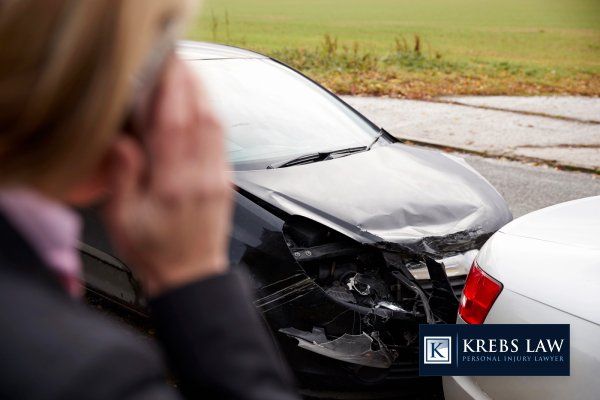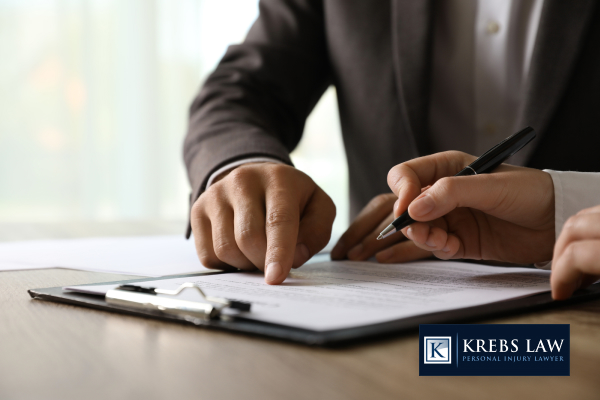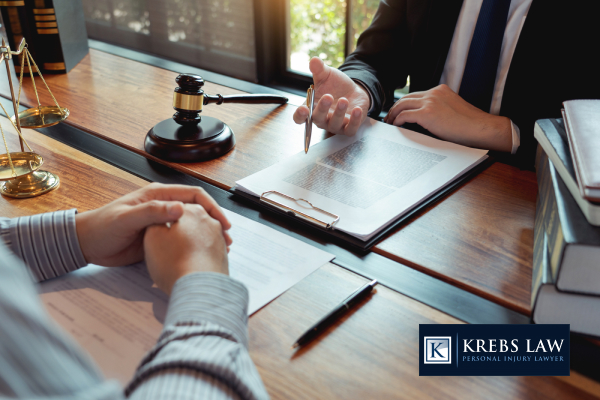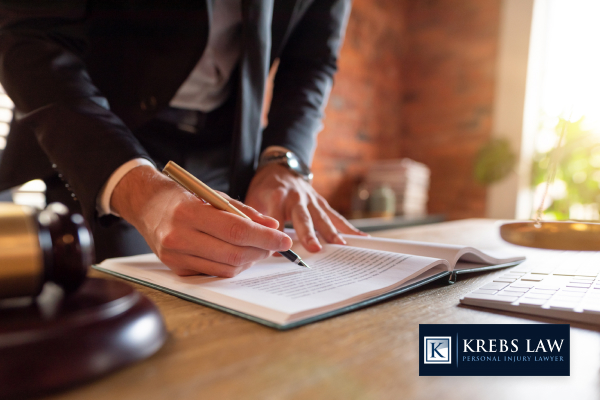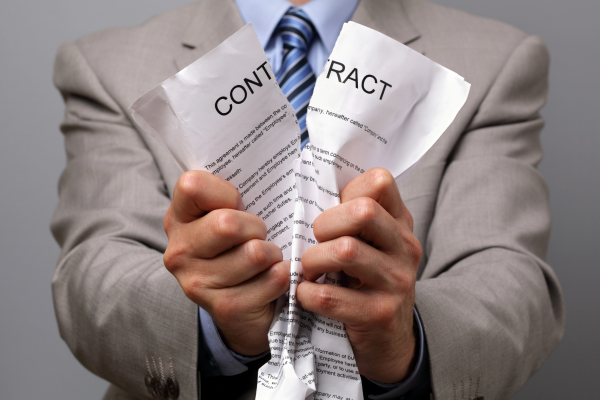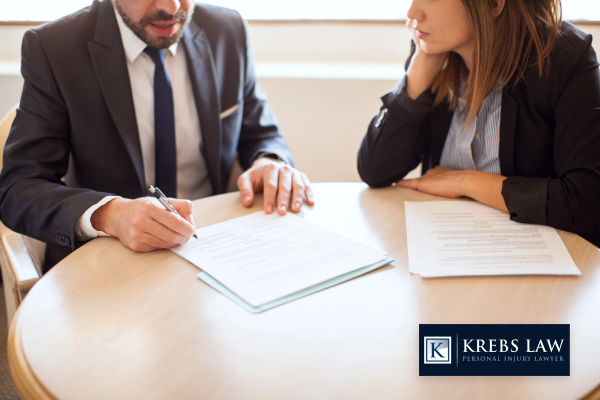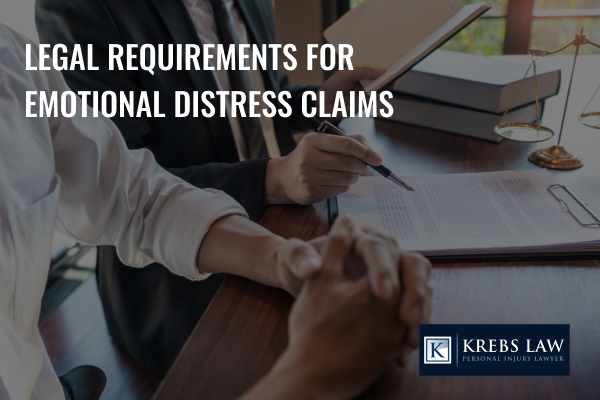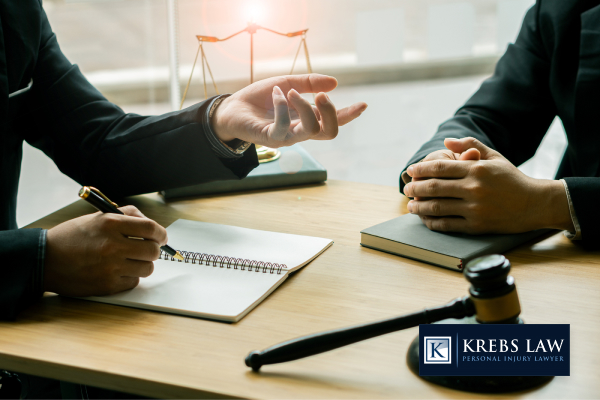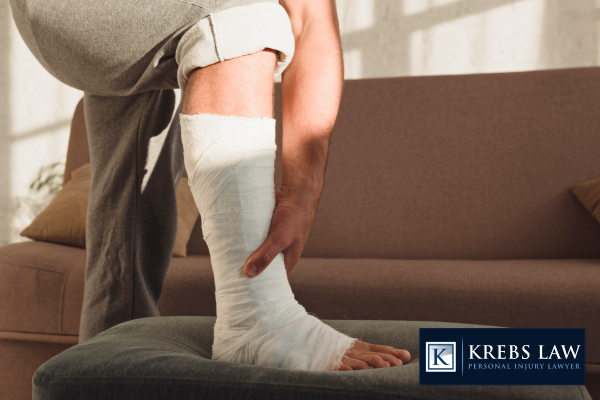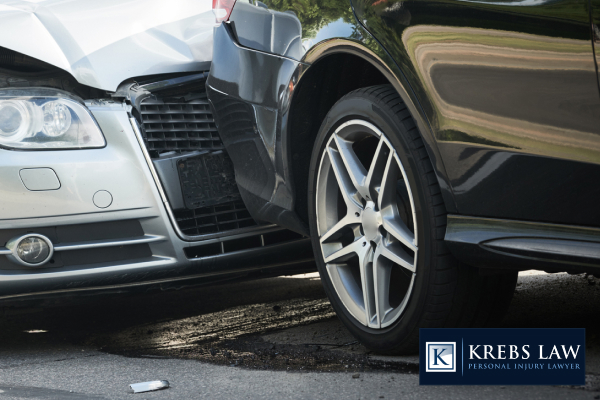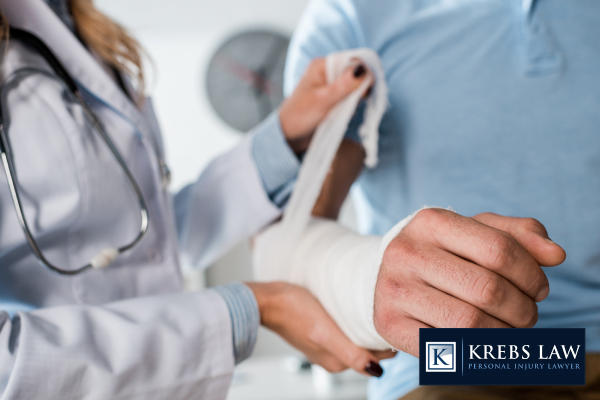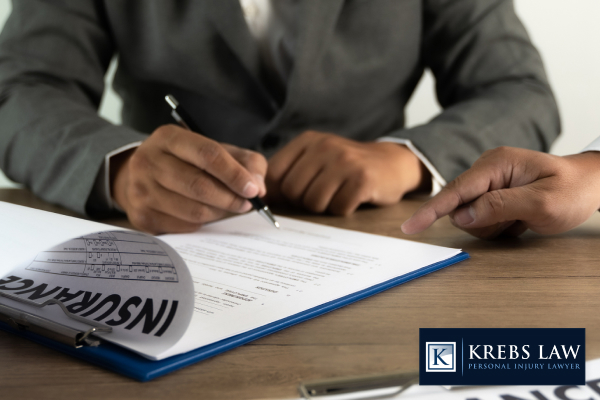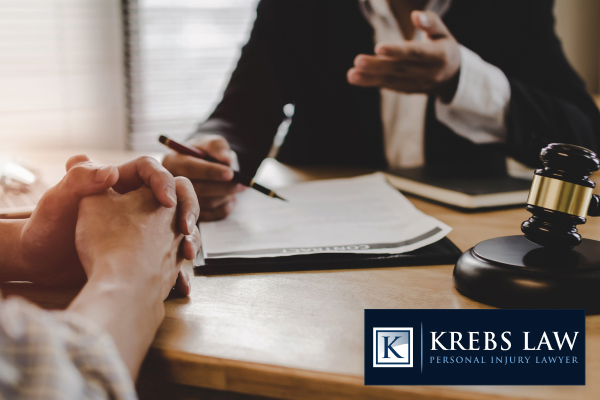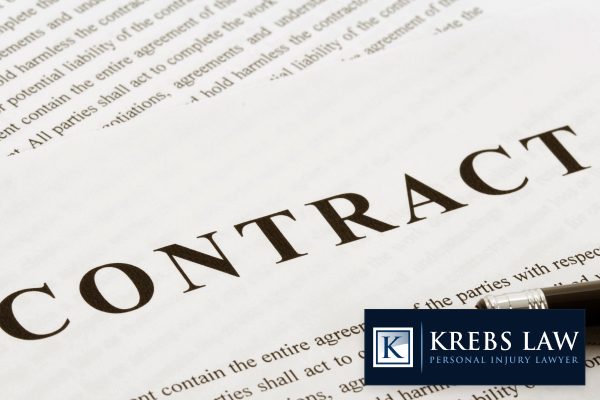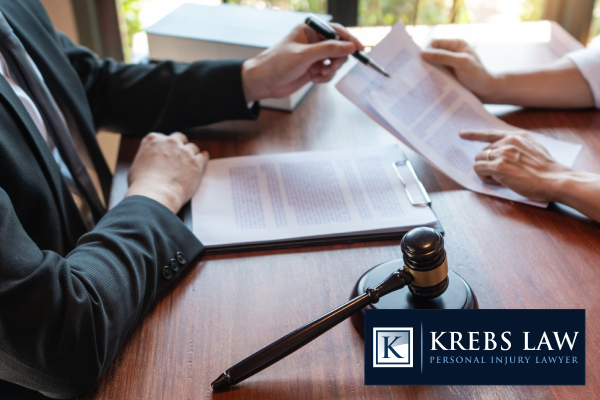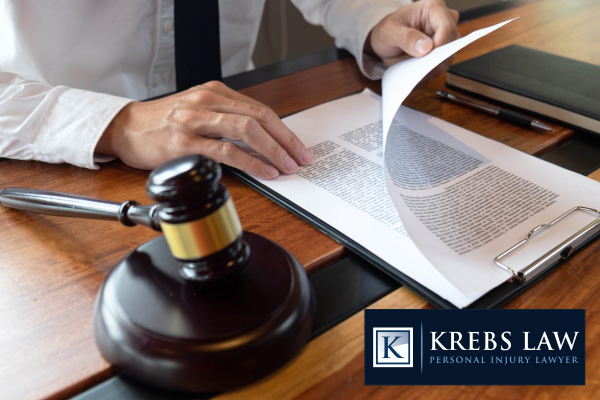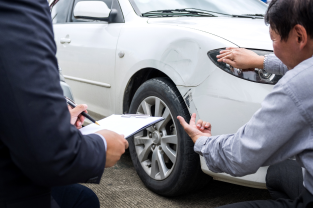How to File a Personal Injury Lawsuit
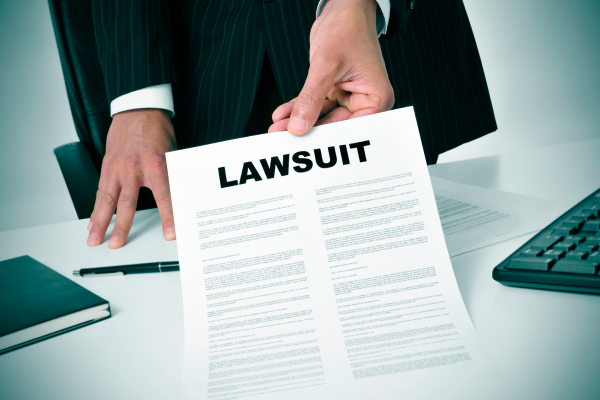
Knowing the right steps to take is essential if someone else's negligence has injured you. Based in Alabama, Krebs Law, LLC is a law firm with extensive experience in the personal injury claim process.
Filing a lawsuit can seem overwhelming, but you can make it more manageable once you know the basics. Having legal expertise by your side can make a difference in the outcome of your case.
If you want an experienced personal injury lawyer to work on your claims process, contact Krebs Law. We schedule free initial consultations so you can discover how to get a fair settlement amount.
What Constitutes Personal Injury?
Personal injury is any physical or psychological harm caused by another party's actions or negligence. The injury must have caused significant damage, affecting your life and well-being. In addition to physical harm, most personal injury lawsuits can entail emotional distress and financial losses.
Lost wages, medical bills, and psychological effects are all factors considered in these cases. Proving the extent of these damages is key in a personal injury claim.
Statute of Limitations in Alabama
Personal injury claims must be filed within a specific time frame in Alabama. The statute of limitations for most personal injury cases is two years from the day the injury occurred. Please file your claim during this time to avoid losing your right to demand compensation.
Types of Personal Injury Cases

A personal injury case can come in many forms, with unique circumstances and legal considerations. Recognizing the different types can help you determine your situation's best action. The most common cases of personal injuries include:
- Car accidents: Injuries often involve complex insurance claims and liability issues. It's essential to gather evidence and get medical attention immediately.
- Slip and falls: Anyone who owns property should ensure it's safe for others. Slip and fall cases often depend on proving negligence and the dangerous condition of a property and holding their owners accountable.
- Medical malpractice cases: When medical professionals don't succeed in giving proper medical assistance, you can seek compensation for the harm done to you. These cases require expert testimony and detailed medical records.
- Workplace injuries: Workers' compensation covers most workplace injuries, but there are instances where a personal injury lawsuit is required. This is especially true if a third party is involved.
- Product liability: If a defective product hurts someone, its makers or distributors can be liable. These cases often require demonstrating the defect and how the product caused the injury.
- Wrongful death: If negligence results in death, the deceased's family can file a wrongful death claim. This aims to compensate for the loss of income, companionship, and funeral expenses.
Common Challenges in Personal Injury Lawsuits
Personal injury lawsuits can present various challenges. These include proving liability, dealing with insurance companies, and gathering sufficient evidence. Knowing these challenges can help you better prepare for your case, especially for minors.
Initial Steps to Take After an Injury
After an injury, your immediate actions can say a lot about you and what you prioritize. Seek medical treatment above all else. Your health and safety should come first.
Ensure you receive medical treatment, even if injuries initially seem minor. This ensures proper treatment and provides important documentation for your claim.
Even small personal injury claims should be looked over carefully. We exercise reasonable care for wrongful death cases as well.
Document the Incident
Gathering evidence at the scene is essential for your case. Take photos, collect witness statements, and note any relevant details. These key documents can help establish the circumstances of the accident and support your claim.
Keeping a detailed record of events and your injuries can also be beneficial, given that evidence is considered on a legal and factual basis.
The Role of an Attorney in Personal Injury

Working with a skilled lawyer in personal injury cases helps make things easier. Attorneys help you through the legal process, ensuring all essential documents are filed correctly and on time.
Some benefits and reasons to hire a personal injury lawyer are the following:
- Expertise: Personal injury attorneys know the laws and procedures specific to your case. They can provide strategic advice to strengthen your claim.
- Negotiation skills: Lawyers have experience in negotiating and handling discussions with insurance companies. They aim to secure the best possible settlement for you.
- Stress relief: Handling a lawsuit can be stressful, especially while recovering from an injury. A lawyer takes on the legal tasks and requirements, allowing you to focus on healing.
- Access to resources: Attorneys have access to many professionals and experts, such as medical professionals and accident reconstructionists, who can help in the claim process.
- Contingency fee basis: Most personal injury lawyers charge on a contingency fee basis, meaning they only get paid until you win your case. Krebs Law, LLC makes legal representation more accessible in this way.
Filing a Personal Injury Claim
If you want to file a claim for a personal injury, you should start by consulting with an attorney to assess the strength of your case. They will help you gather evidence, document damages, and draft legal documents.
Submitting the Claim
After preparing your case, your attorney will file the claim with the appropriate court. All necessary documents will be submitted, and the defendant will be notified.
Proper filing ensures your case proceeds without unneeded delays. Our skilled personal injury attorneys can negotiate with the insurance company for you after your car accident. This is important for maximizing your settlement.
The Discovery Process
During discovery, both parties exchange information relevant to the case. This phase allows each side to gather evidence and build their arguments.
Deposition and Interrogatories
Depositions and interrogatories are part of the discovery process. Depositions involve sworn out-of-court testimonies from witnesses.
Interrogations are written questions requiring written responses under oath to determine the at-fault party or driver in case of accidents. Both tools help gather detailed information about the injury that occurred. Our personal injury law firm is here to help you.
Negotiating a Settlement

Many personal injury cases are settled out of court. Settlement negotiations involve discussions between your attorney and the defendant's legal team. The desired outcome is to get a fair agreement without needing a trial.
Settling out of court can save time and legal expenses. It often leads to a quicker resolution, allowing you to move on sooner. However, settlements may result in lower compensation than a successful trial verdict.
On the other hand, taking a case to trial can sometimes yield higher compensation. Trials provide a platform for fully presenting your case, potentially resulting in a more favorable outcome. However, trials are time-consuming and expensive, and they carry the risk of an unwanted verdict.
Going to Trial
Your case may go to trial if a fair settlement cannot be reached. Both parties present their evidence and disputes to a judge or jury during the trial. The process can take long time, but it provides a formal resolution.
What to Expect During a Trial
You can expect opening statements, witness testimonies, and closing arguments during a trial. Both sides will present their evidence and question witnesses. The judge or jury will then deliberate and deliver a verdict based on the presented facts.
Proving Liability in Personal Injury Cases
Establishing liability is critical in personal injury cases. You must prove that the defendant's actions or negligence directly caused your injury. This requires presenting compelling evidence and a clear argument.
The at-fault party's insurer will attempt to prove that your physical injuries had a prior antecedent. An experienced personal injury attorney will know common insurance tactics to reduce costs, ensuring you are defended against any attempts from the parties involved.
Negligence
Negligence is a key factor in many personal injury cases. To prove negligence, you must show that the defendant had a responsibility, breached that duty, and caused your injury. Demonstrating negligence is crucial for a successful claim.
Establishing fault involves showing how the defendant's actions led to your injury. This can include proving reckless behavior, failure to act, or violating safety regulations. Clear evidence and expert testimony can help establish fault and responsibility.
Calculating Damages

Calculating damages involves assessing the financial burden of your injury. This includes medical expenses, lost wages, and non-economic damages like pain and suffering. Accurate calculation is essential for fair compensation.
Different types of personal injury damages that can be claimed are:
- Medical expenses: Medical treatment, surgeries, and ongoing care costs. Expenses can also include future medical expenses related to the injury.
- Lost wages: If any income was lost due to the injury, you could be compensated for those expenses. Wages also consider future earning potential if the injury affects your ability to work.
- Physical or emotional: Compensation for physical pain and emotional distress. These damages can be challenging to quantify but are a critical component of damages.
- Property damage: Replaces costs for damaged property, such as vehicles and motorcycles. Property damage is common in cases involving vehicle accidents.
- Punitive damages: Punitive damages may be awarded in cases of egregious behavior. These aim to punish the defendant and deter similar actions.
How Damages Are Calculated
Damages are calculated depending on many factors, including the severity of the injury and its effect on your life. Economic damages are quantified using bills and financial records. Non-economic damages are assessed based on the injury's effect on your quality of life.
Dealing with Insurance Companies
Insurance companies often aim to minimize payouts. They may dispute the extent of your injuries or the circumstances of the incident. Having an attorney handle communications can help ensure you receive fair compensation.
Post-Trial Procedures
After a trial, there are several post-trial procedures to consider. If you win, the defendant may be required to pay the awarded damages. They may appeal the decision if either party is dissatisfied with the verdict.
Collecting Your Judgment
Collecting your judgment involves ensuring the defendant pays the awarded damages. This can sometimes require additional legal action if the defendant is unwilling to pay. Your attorney can assist with enforcing the judgment.
Options for Appeal
If you are unhappy with the trial's outcome, you can appeal. An appeal is when the higher court is asked to review the case for legal errors. This process can be complex and requires a skilled attorney to navigate.
Contact Krebs Law, LLC, and Schedule a Consultation

If you or a loved one has been injured due to someone else's negligence, Krebs Law, LLC, is here to help. Our experienced team is dedicated to providing efficient and reliable representation.
Contact us to schedule a consultation and learn how we can advise and assist with your personal injury case. Let us help you secure the compensation you deserve and start your journey toward recovery.

